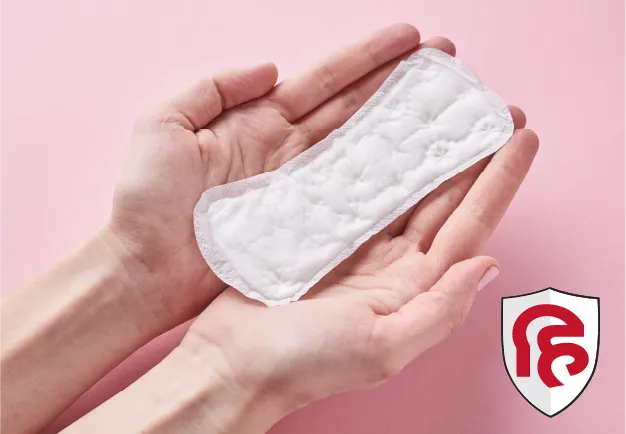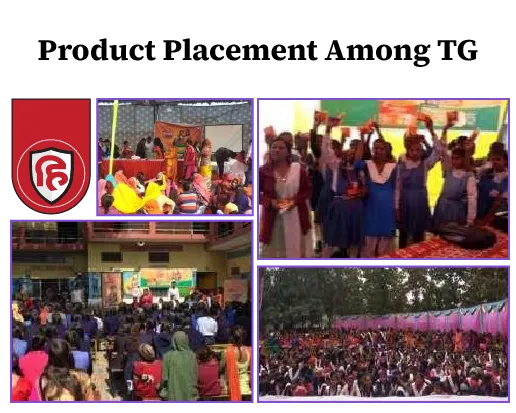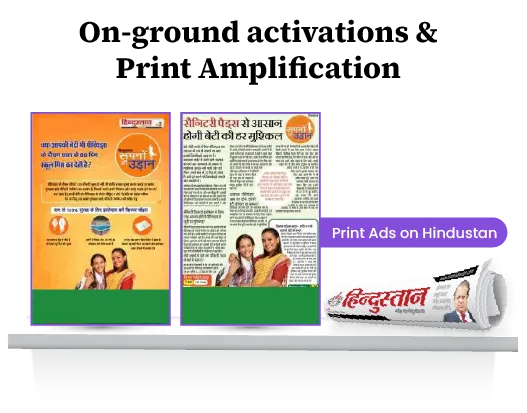
Category Building Initiative
How the Leader in Women's Menstrual Hygiene Successfully Achieved Its Targeted Product Placement
Client: The Leader in Women's Menstrual Hygiene
Category: FMCG
Solution: On-ground Activations; Media Amplification
About the Collaboration
In India, entrenched taboos and stigma surrounding menstrual hygiene pose significant challenges to adopting sanitary napkins and maintaining overall menstrual health. Cultural beliefs linking menstruation with impurity contribute to the stigmatization of menstruating women, hindering open discussions and access to hygiene products. Inadequate awareness and education, particularly in rural areas, compound the issue as girls and women lack information on proper hygiene practices and available products. A key solution to these challenges involves targeted awareness campaigns, that foster an environment where menstrual hygiene is openly discussed and supported. The client aimed to do just that, reach rural women, and help them understand the benefits of sanitary napkin adoption.

Target Audience
Adult Women
Mothers of Teenage Daughters
Cloth Users
Our Approach
In Hindustan's strategic initiative targeting 16 districts in Uttar Pradesh with low sanitary napkin penetration, the project employed innovative outreach methods. Leveraging the expertise of ASHAs and Anganwadi workers, the initiative focused on widespread awareness and knowledge dissemination about menstrual hygiene among rural women. To bolster adoption, local experts endorsed the use of sanitary pads, providing crucial support for the initiative's success.

Campaign Execution
Educational events lasting 2 hours were organised in 12 districts in U.P, featuring sessions by gynaecologists, that had small-stage dramas, and insightful experiences shared between mothers and daughters. These events aimed to promote awareness and understanding of menstrual hygiene. Following the events, the team implemented a robust follow-up strategy, organising regular community-level discourses facilitated by ASHA and Anganwadi workers. This ongoing engagement focused on menstrual management as an integral part of behaviour change communication, establishing an ecosystem for continued support and education. The campaign was further amplified in Hindustan Print editions as branded content.

Results
- The on-ground activations were successfully conducted in 12 districts in Uttar Pradesh, and then paused with the onset of the COVID-19 pandemic.
- The campaign was publicised in Hindustan newspaper further amplifying the reach to millions of readers in the North Indian belt of Hindi speaking audience.





